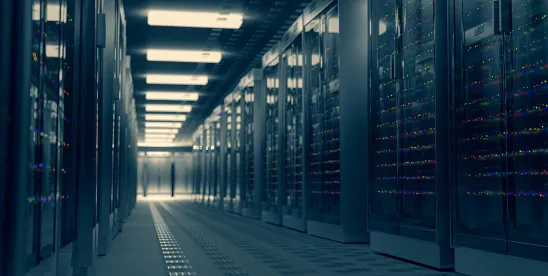On June 3, 2025, Constellation and Meta announced a 20-year virtual power purchase agreement (the “PPA”) for the output from the nuclear reactor at Constellation’s Clinton Clean Energy Center. This partnership exemplifies the strong tech industry interest in supporting existing nuclear generation to address increased load from data centers and meet clean energy goals.
1. What is the Clinton Clean Energy Center?
The Clinton Clean Energy Center’s singular nuclear reactor was placed into commercial service in 1987, and had originally been set for closure in 2017. In their press release, Constellation indicated that the Clinton Clean Energy Center was able to remain operational through 2027 by relying on the Zero Emissions Credit program established under the Illinois Future Energy Jobs Act. The PPA will now allow Constellation to not only keep the Clinton Clean Energy Center online for another 20 years, but also to add an additional 30MW of incremental capacity and preserve local jobs. In parallel with these efforts to maintain the Clinton Clean Energy Center, Constellation is considering seeking Nuclear Regulatory Commission approval of construction permits for new small modular reactors to be located at the Clinton, Illinois site. For more information on small modular reactors, see our article on the Tennessee Valley Authority’s recent application.
News of the Meta PPA comes after Constellation’s September 2024 announcement that it had entered into a similar 20-year PPA with Microsoft for the Crane Clean Energy Center which involves restarting Three Mile Island Unit 1. Unit 1 shut down in 2019 due to economic reasons; once reactivated with modernized infrastructure, it will provide 835MW of energy. Microsoft will purchase energy from the plant as part of its goal to offset power used by its data centers, which are responsible for powering AI and cloud computing.
2. Why is Meta Interested?
In their announcement of the PPA, Meta indicated AI growth was a key driver for their interest in nuclear generation beyond just this individual deal, in addition to clean energy goals, noting “[a]s we look toward our future energy needs in advancing AI, we recognize the immense value of nuclear power in providing reliable, firm electricity, and the role nuclear projects can have in supporting local economies and strengthening America’s energy leadership.” Underscoring this goal, in December of 2024, Meta announced an RFP process “to identify nuclear energy developers to help us meet our AI innovation and sustainability objectives”, with the target of adding 1-4GW of new nuclear generation capacity in the early 2030s.
3. What is in the PPA?
Through the PPA, Meta will purchase the clean energy attributes from the 1,092MW Clinton Clean Energy Center (rather than purchasing the energy itself to power data centers directly) to support Meta’s “clean energy goals and operations.” While price/MWh has not been disclosed, both Meta and Constellation’s announcements estimated a contribution of $13.5 million in annual tax revenue to be generated, along with the preservation of 1,100 local jobs. Because this is a merchant plant agreement with a private entity, the parties are not required to obtain certain regulatory approvals that might otherwise apply. The PPA term will begin in 2027.
4. Are Other Companies doing Similar Deals?
Other companies are engaging in similar agreements to the PPA signed by Constellation and Meta.For instance, Talen Energy Corporation signed a PPA with Amazon to supply 1,920MW of nuclear energy to Amazon Web Services data centers across Pennsylvania. This energy will be generated from a power plant located in Susquehanna, PA, and will support AI and other cloud-based systems. Additionally, Talen and Amazon plan to explore the construction of new small modular reactors and increase the nuclear plant’s energy output through uprates. It is expected that full volume will be achieved by 2032, but the contract is set to run through 2042 with an option to extend its duration. The agreement will support 900 existing power plant employees and create new construction job opportunities.
This PPA and others like it demonstrate that tech companies view preservation of existing nuclear generation as an important element of their ongoing AI growth strategy and clean energy goals. Please reach out to any of the authors here or another member of your Foley team if you have any questions about these topics.






 />i
/>i

